https://discover.23andme.com/last-name/Dennis
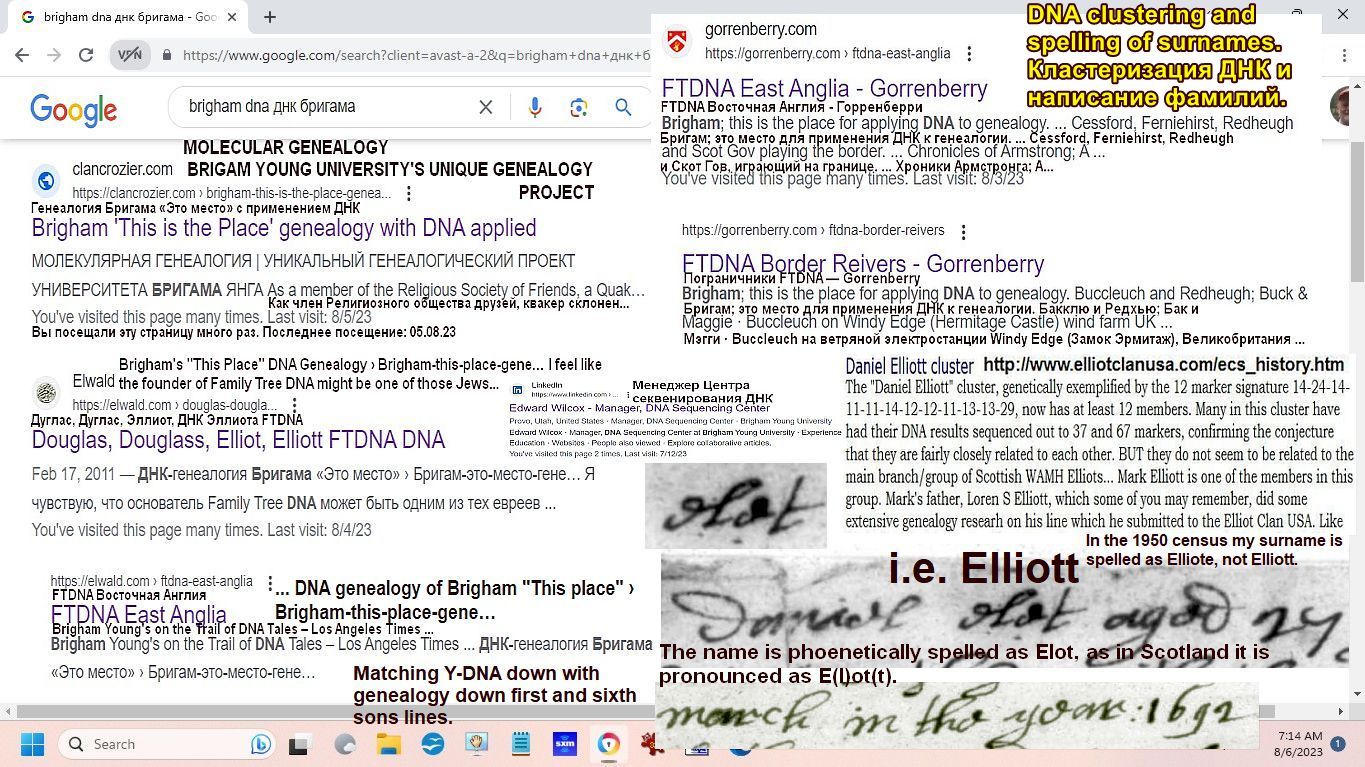 Elwald to Ellot to adopting a variant of Aliot/Eliot.
Elwald to Ellot to adopting a variant of Aliot/Eliot.
One can kind of follow given above map Wm de Aliot to Breton, then on to St Germain/Port Eliot.
Mark Elliott 7/15/2013
The above shows the dominance in 1891 which the southern United Kingdom had for the name Eliot.
It should be noted;
Aliot-A+E=Eliot
Eliot+l=Elliot
Elliot+t=Elliott
In the borders;
Ellot+i=Elliot
In United Kingdom in Per Million of People, for;
Eliot is 4, Elliot is 93, and Elliott is 881.
Feel letters were added to Eliot to make other forms.
note; Ellot spelling is basically not used in the UK; England or Scotland. The numbers today are so low they are non applicable.
supplemented data and distributions 8/18/2013;
Irish Elliot variants,
Elliott
The name Elliott in Ireland is usually of immigrant origin having been introduced into the Province of Ulster by settlers from England and Scotland, especially during the seventeenth century. Since that time the name has been mostly associated with Counties Cavan, Fermanagh and leitrim.
Origen: Irlandés, Escocés. The ancestors of the Elliott family were part of an ancient Scottish tribe called the Picts. They lived in Liddesdale and Teviotdale where the family has a long and distinguished history dating back to the early Middle Ages. The name is actually derived from the Old English personal name Elwald or Aelfwald, but this name is now all but extinct as a personal name. First found in Liddesdale, and Teviotdale where they were seated from very ancient times, some say well before the Norman Conquest and the arrival of Duke William at Hastings in 1066 A.D.
Variantes: Elliott, Elliot, Eliot, Eliott, Ellegett, Ellegot, Ellecot, Ellacott, Ellacot, Ellgate, Ellett, Ellit y otros.
Motto Translated: Through adventure.
The ones in bold are felt to be Irish variants, which could be a variant of the Aliot or Ellot (of Elwald). It should be noted that the above shows they are of the Elwald variant, but being on the west side of the island, it is likely most could be of a Breton variant.
Mark Elliott added 7/26/2013
By Keith Elliot Hunter, historian Elliot Clan Society
THE ELLIOTS-BRETONS,ENGLISH,WELSH AND SCOTS KEH
Summary of evidence
- A large Breton contingent joined William the Conqueror in 1066, and legend has it that it was a Breton archer who fatally wounded King Harold Godwyn . (I have seen it on one site and need to refind it) The principal Breton magnates were the Penthièvre heirs, Alan, made Earl of Richmond, and Brien, who was awarded vast lands in the old Kingdom of Wessex
( Devon and Cornwall) which he had to give up to Robert, Count of Mortain,William’s half brother, on retirement to Brittany with serious wounds. Whoever sub-enfeoffed Eliots in Devon ( probably Judhael, Count of Nantes) would have become Mortain’s vassal. Until fairly recently the impact of William’s Breton mercenaries, has been neglected by historians. Michael Jones and Katherine Keats-Rohan have now rectified this. A second wave was brought over by Henri I.
- The steady encroachment of Brythonic (P Celtic) Bretons on southern French speaking Gallo-Roman Brittany, AND/OR the Normanisation of the leading Elliot families, of knightly status, is the most plausible reason for the final shortening in Brittany of Eléouet to Elliot and Alléouet to Alliot ( which is accepted as one of the many Scots variants of Elliot, although many would probably have accepted the “E” version). Michael Jones writes of the growth, in several thousands, of a class of “milites” = knights/chevaliers in Brittany, through whom the Dukes of Brittany maintained a balance of power against his over-mighty vassals.
- Early charters did not show a Breton surname, or Norman type chevalieresque or baronial surname derived from a place of birth preceded by “de” or “du”, “d’”= “of,” except in the case of Breton members of the “noblesse” whose aspirations included a Norman militaristic lifestyle. Alain de Penthièvre became Alan, Earl of Richmond. Eliots may have been among those shown in records by a Christian name plus the Latin “Brito,”giving us “Raoul the Breton, Hugh the Breton “ and so on. Surnames started to appear slowly in the late 12th century, and some took another century or two to be used and adopted. Christian names like Aelwald did not become surnames. Elliot was a toponymic name, not a Christian name.
- The Eliot surname would have been required as and when manorial records and Royal and aristocratic charters became more sophisticated, and Michael Jones points out that the Breton mercenary immigrants were slow to adopt surnames. Their origins, including the geographic or topographic name adopted as a surname, would have been handed down from generation to generation in family gatherings. Knights, esquires, peasants, all from the same Breton area or feature on which the original name was based, were all entitled to use the name. The large number of Eliot name variations reflects some confusion revealing an incomplete mutation, as the Finistère Celtic Bretons moved south to dominate the French speaking Gallo-Roman Bretons. The presence of all of these mutations is evidence against the old theory Aelfwald-Aewald – Ellwald mutation (but see below). The presence of the Ellégoëts / Elligotts blows it sky high.
- Historians know from surviving records that in addition to the settlement of Normans as knights and barons in Scotland, by the Canmore line of Kings, there were Bretons ( the most famous being the ancestor of the Stuart dynasty), and many Flemings, the latter encouraged by William I (the Lion). William imported many mercenaries, including those expelled from England by Henry II, who had fought against his mother, Empress Matilda. They were soon assimilated and took new, Scots names, usually from places or features, like Douglas Water ( for the immediate descendants of Theobald the Fleming), and Innes, from the lands given to Beorwald the Fleming. Freskin the Fleming took the Latin name for Morayshire – Moravia, which became Murray. The only Anglo Saxons to migrate to Angus and Morayshire were either Northumbrian peasants or descendants of those English peasants transferred to work thelands by David I & Earl of Huntingdon when setting up feudalism in Scotland. The Elliots clearly were of a higher status. People did not go straight from peasantry to the grant of vast lands and to baronial status bestowed in Liddesdale, on transplantation from Angus. The idea that the name was based on the non-Gaelic name of Elliot Water is now strongly rejected. The Breton settlers gave their name to this little river. The history of the movement of Normans, Bretons and Flemings north of the Forth, not fully appreciated or well described until recent decades, has been seriously overlooked.
- The long held view that the Eliots ( or Ellyots) of Cornwall and the western marches and the Elliots of Angus, then Liddesdale, were not related is now surely unjustified, excusably so in view of lack of access for many centuries to French parochial and national archives. Nobody, not even the clan historians, knew that the name Elliot and its older version existed in Brittany and Normandy. The assumption that a single L and single T made a difference was based on oversight of other early spellings of the Cornish and Welsh Breton Eliot as Ellyot etc.
- If Elliot had been a name of Anglo-Saxon origin and mutation we would have expected it to have revealed a much wider distribution throughout England.
- For some time, French friends had reminded me that I have a French, or rather Breton second name. This prompted me to dig into French digitalized archives. The evidence of a mutation from Ellégouët through Eléouet, Elouet to Eliot/Elliot (the French spellings) is overwhelming, especially so when the geographic line of mutation for both Alégouët / Elégouët via Allouet /Ellouet to Alliot and Elliot can be traced down the western coastal counties from Finistère down to Morbihan, in Penthièvre territory, and then across the Loire to the Pays Nantais, for the Alliots. Both the lords of Penthièvre and Nantes suppressed revolts in Devon, the latter getting lands around the Devon town of Totnes.
- The real “clincher”, which to my mind cannot be overlooked, is the presence of Elligotts among Elliots, in Scotland. One must presume that the further Scots modification to McElligott ( a strange name in Scotland, with no Gaelic origins whatsoever!!), reflected the slowness of the north-south Breton-French mutation of the name, and the exclusion of many Ellégouëts and Ellouets as those of lower status, from the leading family with close association with a French-speaking population in both Southern Brittany and Normandy.
Many would have later used the name which their leaders brought to Angus.
There is evidence suggesting that some 18th century Elliots used the gentry title “d’Elliot”, again, a toponymic name. The variant Dalliot reveals a Norman French style “d’Alliot”
- The only Old English consonant to mutate was the letter g, which mutated, according to its position in a word, to the semi-consonant y, which then mutated to w. Lagu > law.
Faether ure, thu the eart on heofenum
Sie thin name gehaelgod…………eventually mutated to “hallowed.”
(pron. see theen nahm-uh ye-hael-yed.)
- Aelfwald or Aelwald were Christian names, not toponymic names. Those who bore these names would have become Alf (the) Smith and Alf (the) Cooper, etc etc., by the 12-13th centuries.
- From the start Elégouët > Elléouët > Elliot was a clearly mutated toponymic surname.
- In my view Ellwald was on a par with Beorwald (Flemish) and Rognvaldr (Norse). The derivation was from wealdan /waldan = to rule, to lead etc. mistaken for “forest” by 13th and 14th century scribes ( usually monks employed by those of baronial or gentry status).
- The survival of Elligott as a well established variant of Elliot, discloses a common “g” mutation only. If Elligott survived then so must have Elliot. An early but not too distant Elliot diaspora led to continuation of the name as Ellwood in other parts – NOT in Liddesdale. Collateral branches of the family, and unrelated descendants of Bretons entitled to use the toponymic , must have retained the names Elligott AND Elliot.
- Suddenly ( far too quickly for a mutation of doubtful linguistic provenance) the name Ellwald was dropped by the chieftain, his main heir and all of his cadets. The adoption of a Flemish “honorific” would have lost its meaning and significance. The use of the older name by many of his retainers may even have embarrassed him.
submitted by MSE 4/21/2014
Elliott>Elliot>Eliot statistics
1881 23.2% of Elliot + Elliott is Elliot 1998 11.3% of Elliot + Elliott is Elliot.
The percent of people of the names Elliot & Elliott with the name Elliot has dropped from 23.2% in 1881 to 11.3% in 1998, this is felt that an t has been added to Eliot to make Elliott.
There are more than 150 Elliott to each Eliot.
Eliot;
Though small in number the Eliot show they are likely from France;
The Eliot name also shows and English distribution;
Should be noted that William de Aliot is said to be of the name Eliot.
Aliot is of southern France.
Elliot;
Elliot is a much larger number and they are shown as coming from Denmark (Sweden) and France (Spain).
The name Elliot is shown to be Scottish;
Elliott;
Elliott shows it does not have European origins, and is felt to come from adding an l and t to Eliot or just adding a t to Elliot within Great Britain.
Elliott shows it is both Scottish and English, within the British Isles.
It is felt that the Elliott of Australia, Canada, New-Zealand, United States and Ireland are of the Scottish Elliot (Ellot) name and not of the English Eliot name. Their name became Elliott by Elliot+t.
Ireland of Elliot&Elliott have the greatest percent of Elliot, these are felt to be Ulster, Scots. New Zealand, besides the Ulster Plantation is next highest, and the United States given it’s separation from England the earliest, and not needing to distinguish themselves as Scottish Elliot for the longest length of time has the lowest percent of Elliot.
Mark Elliott 10/29/2015
The i inserted into the Ellot named brought down by the Douglas, earls of Angus, from Angus to soldier the Hermitage Castle, was introduced by French de Aliot/Eliot/Elliot origins.
11/5/2018 MSE

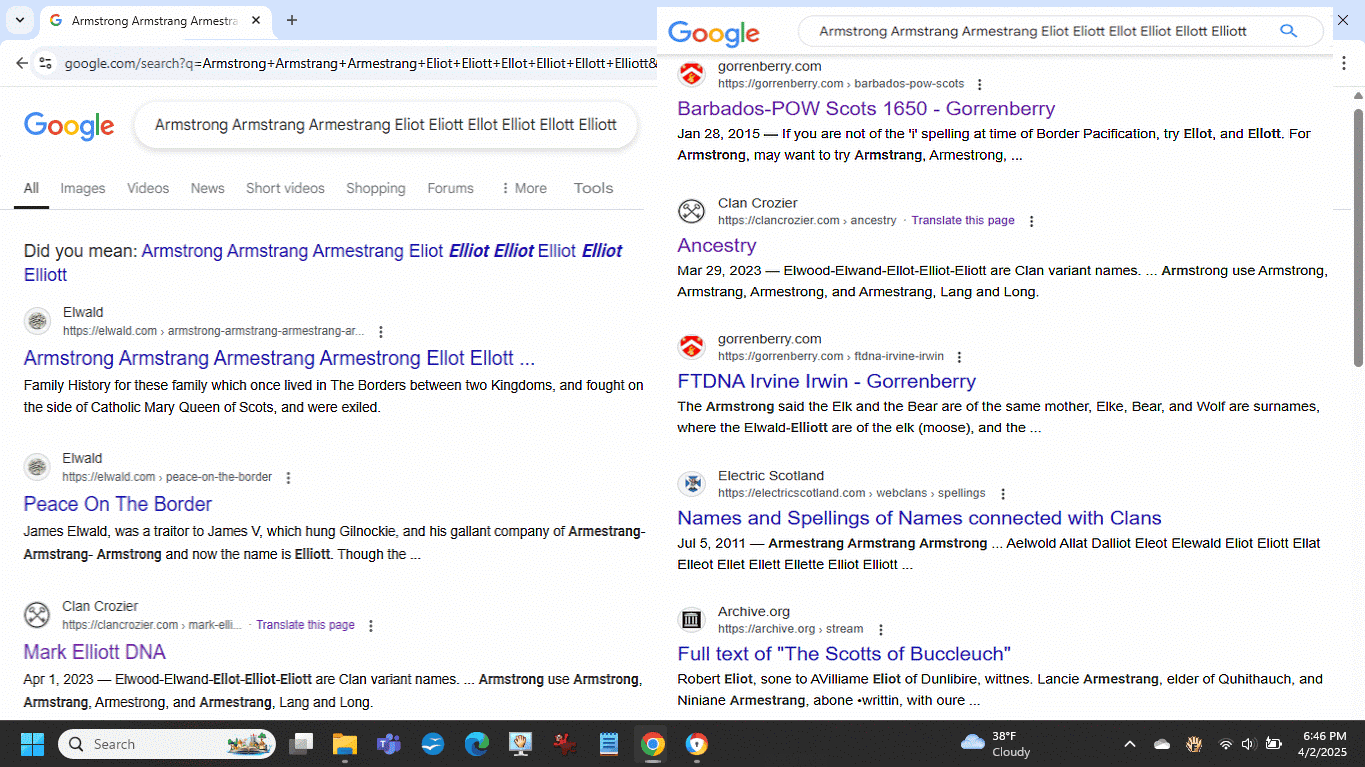
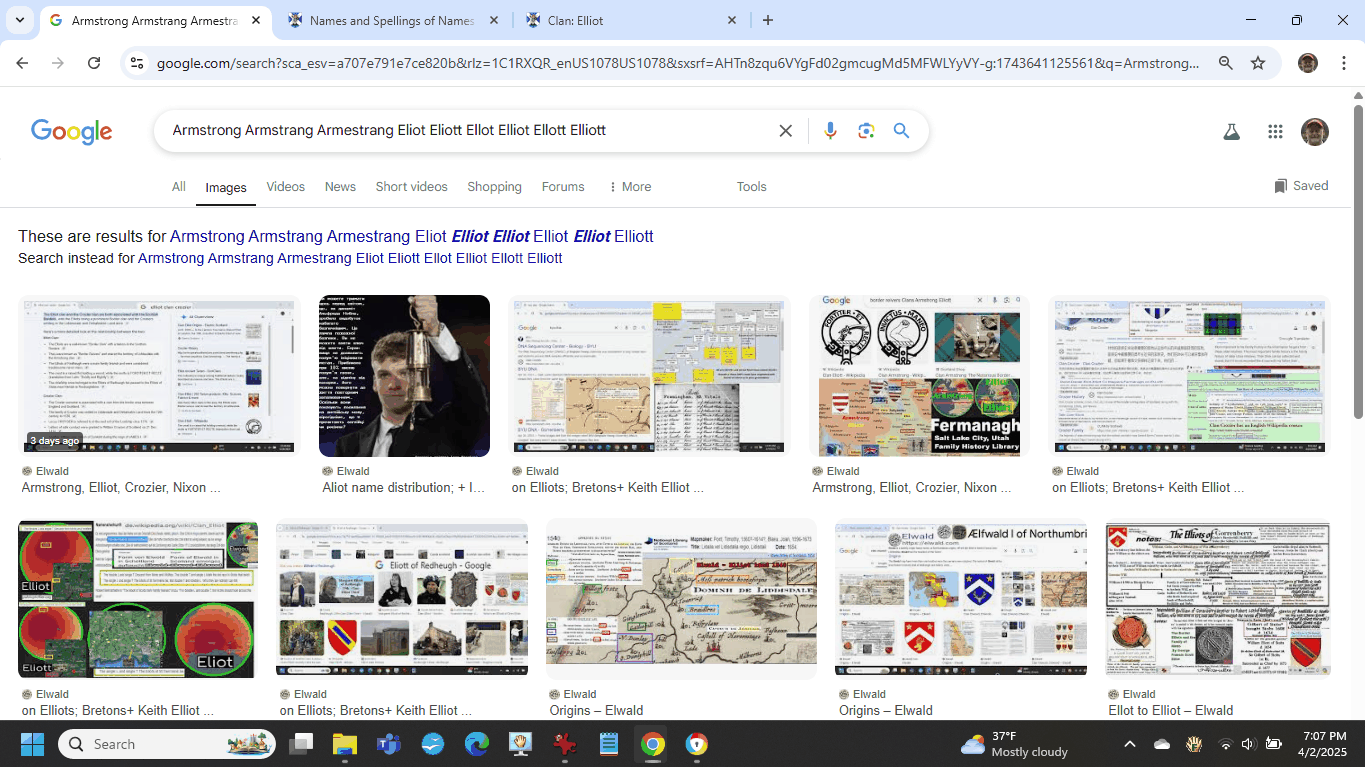
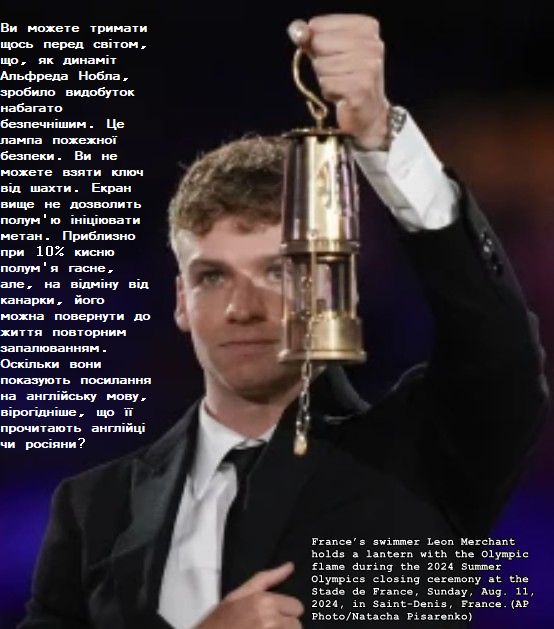
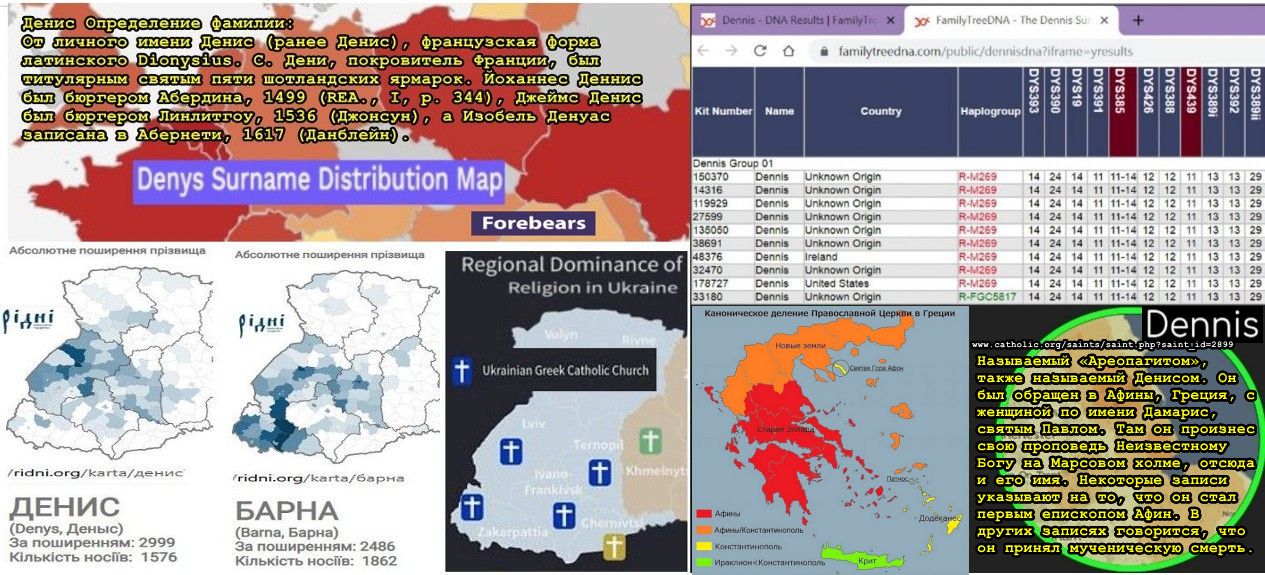
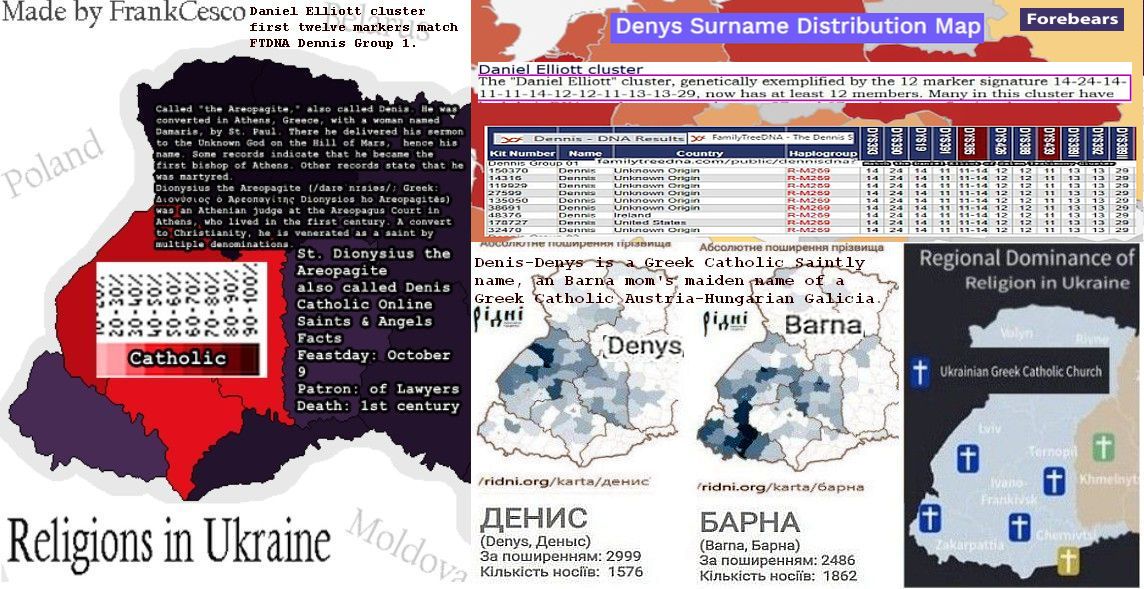
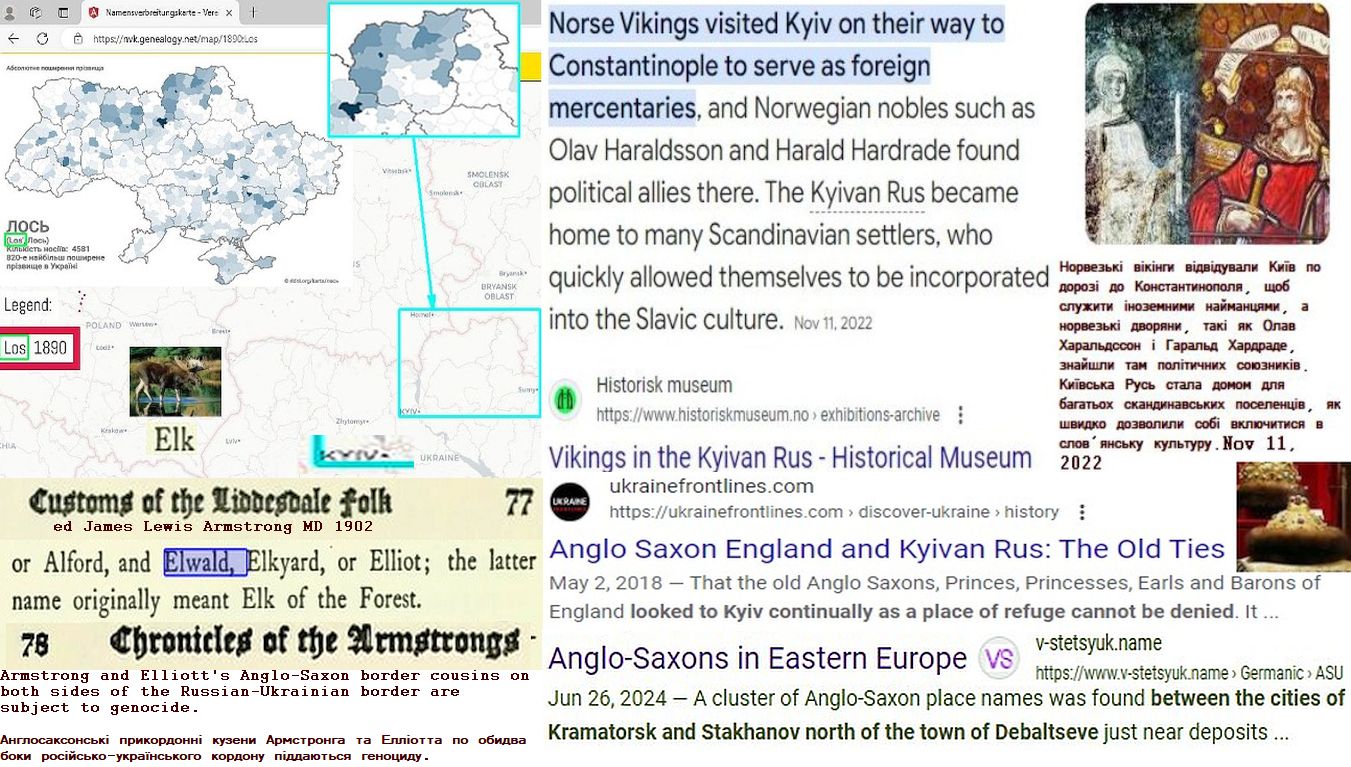
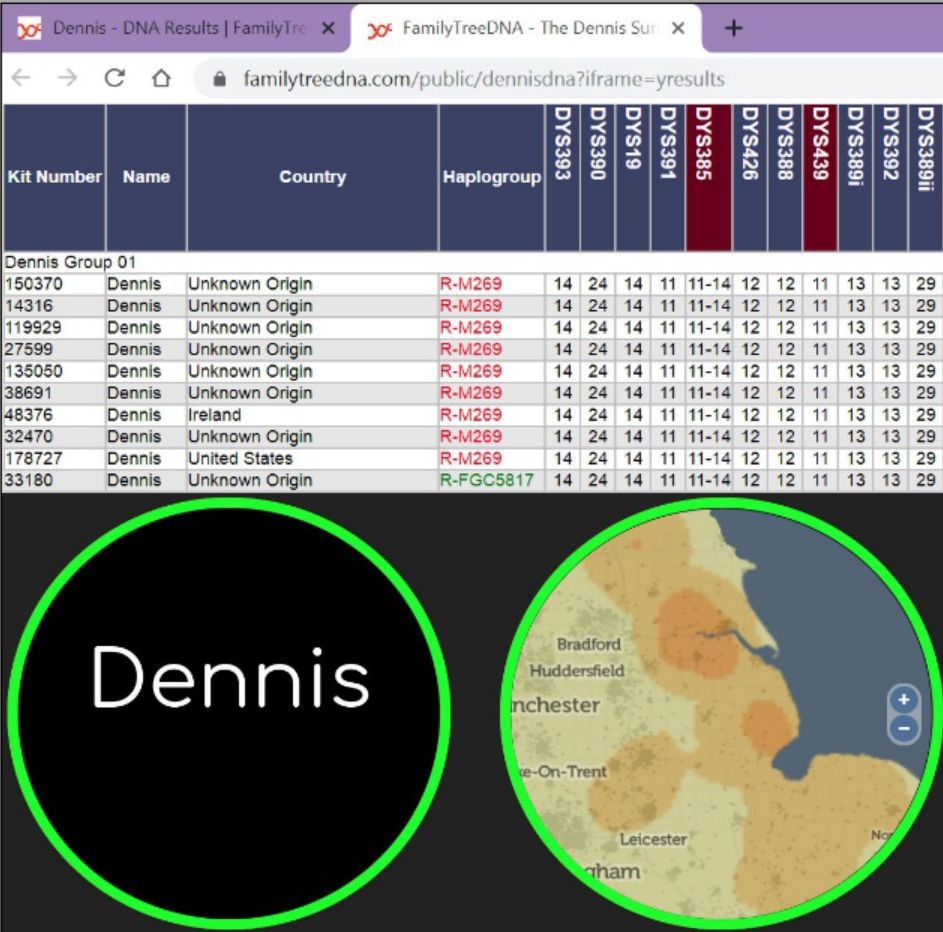
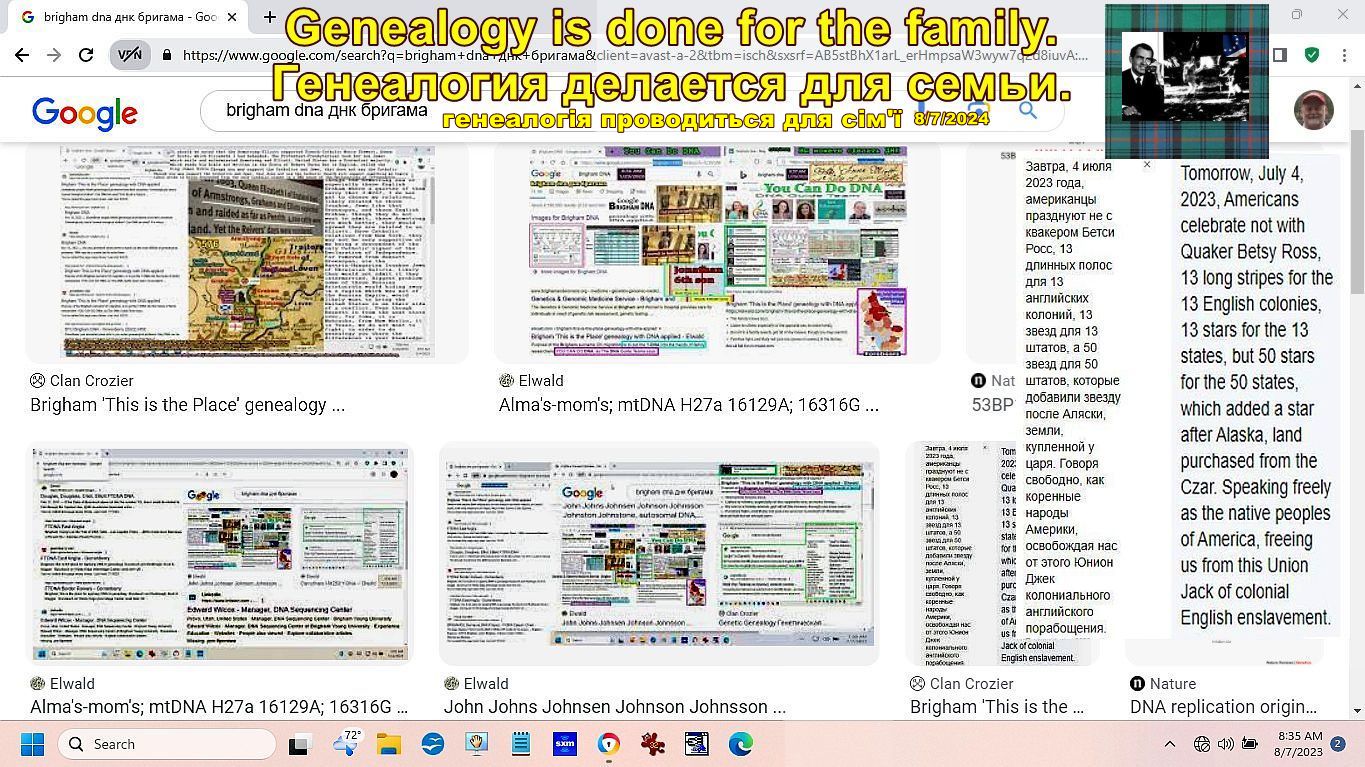
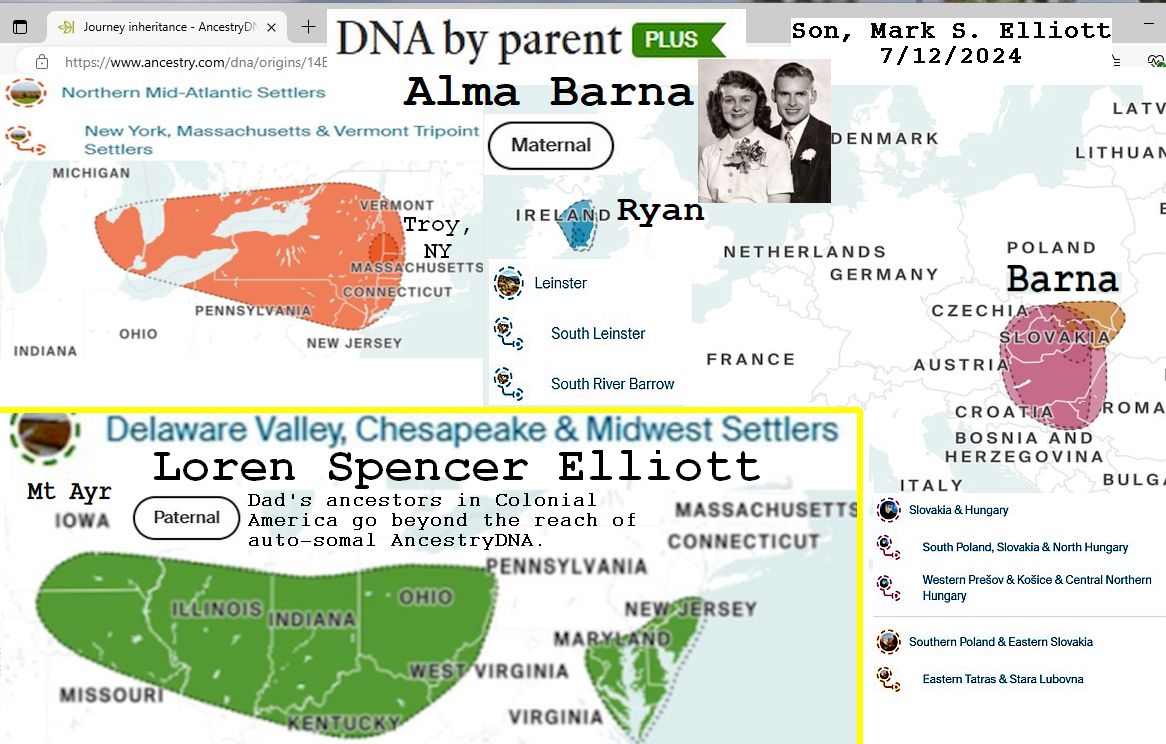
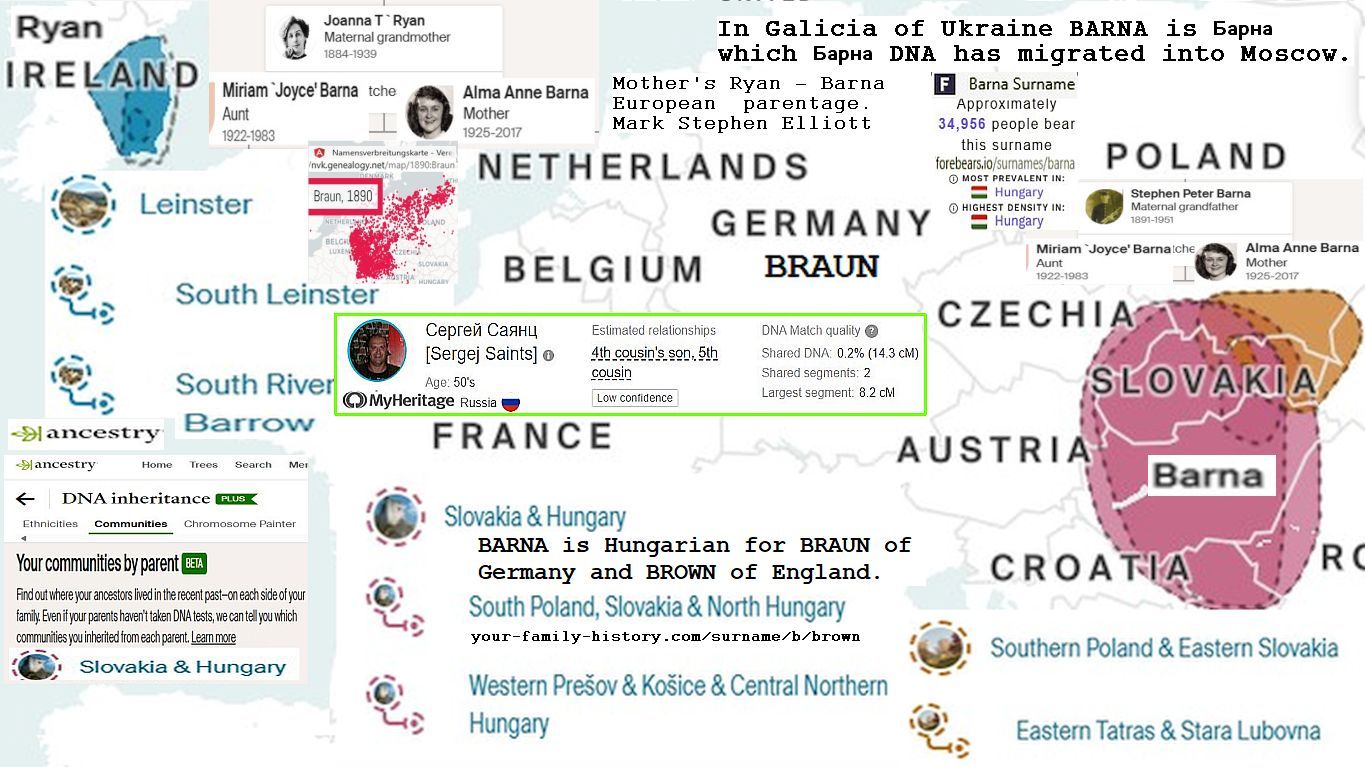
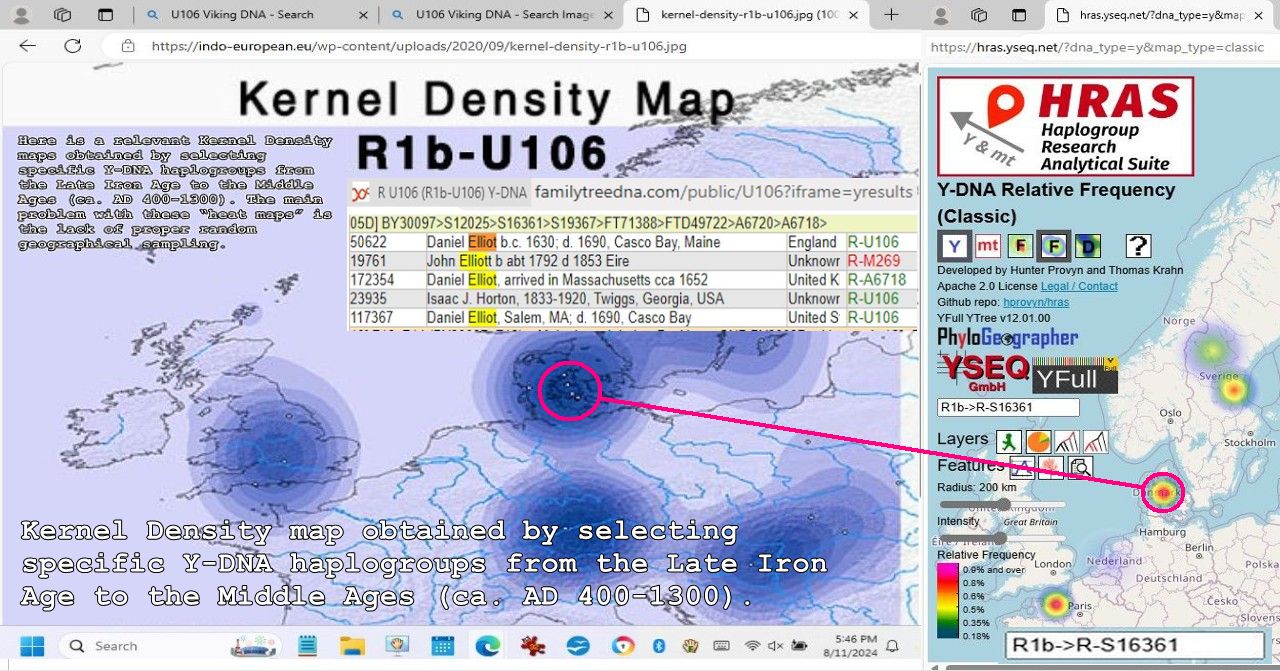
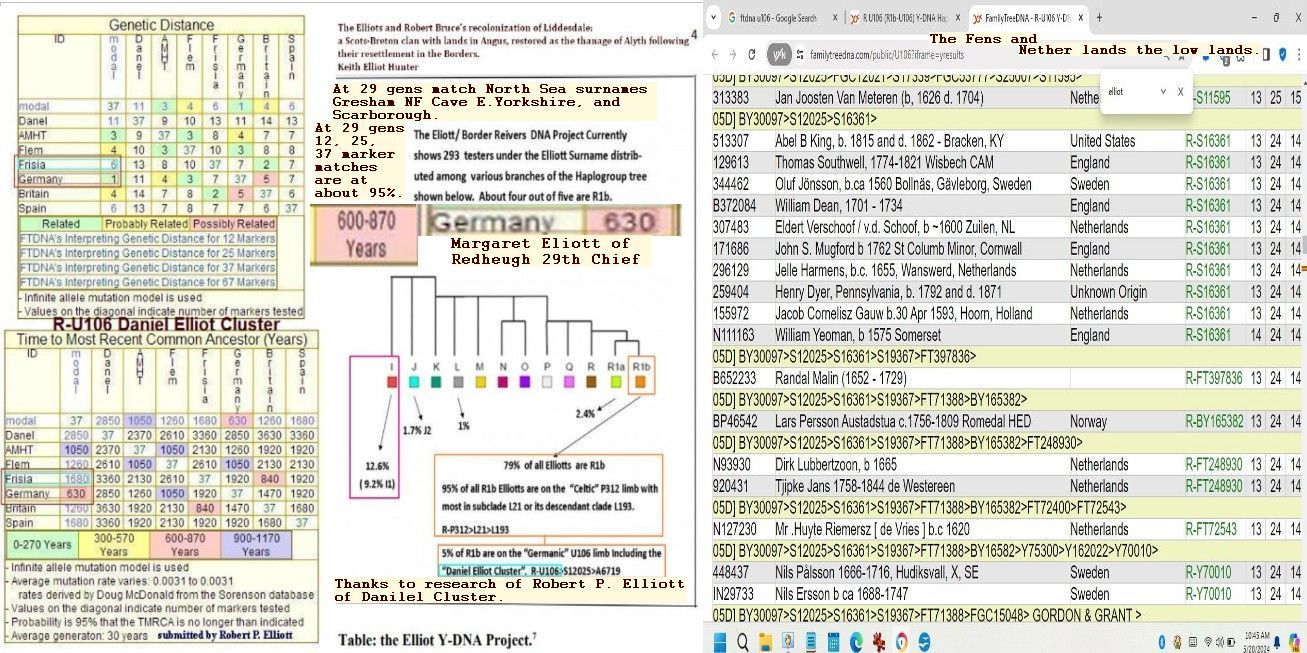
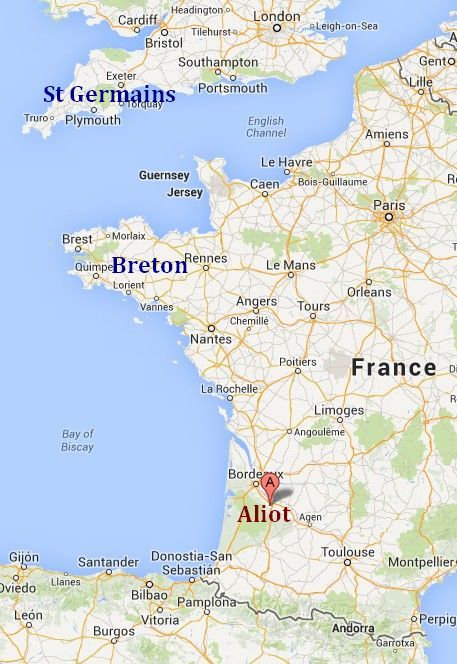
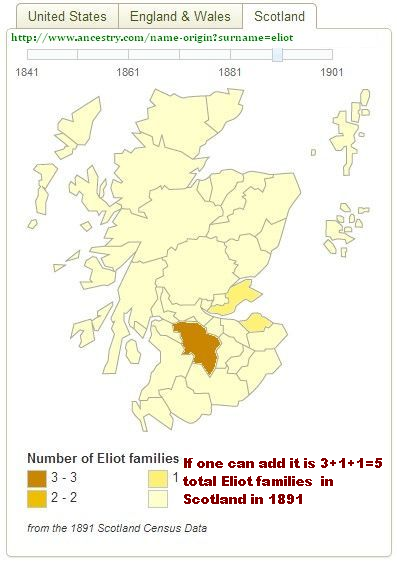
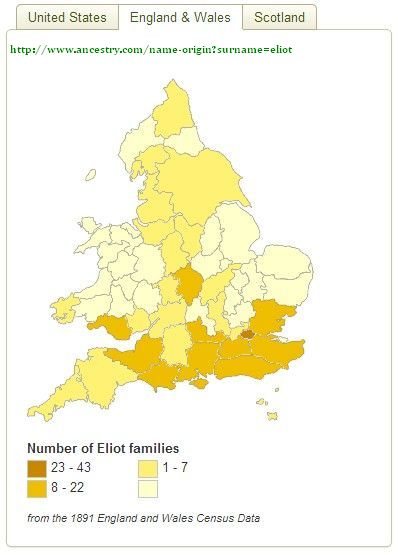
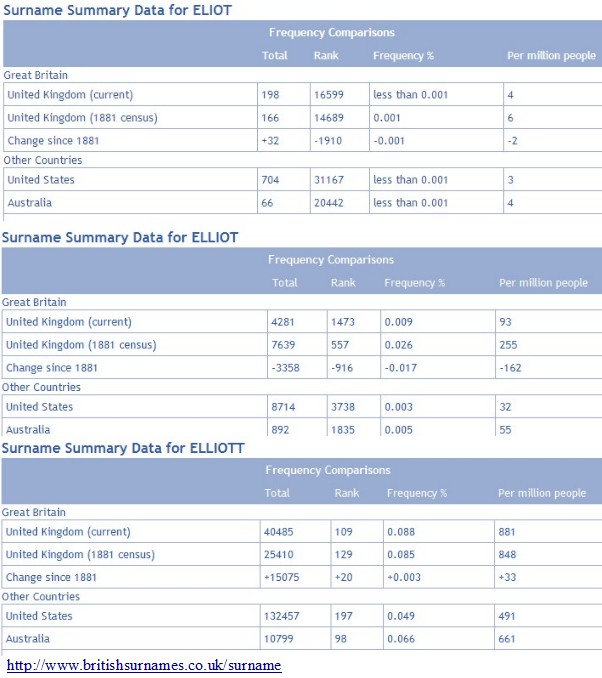

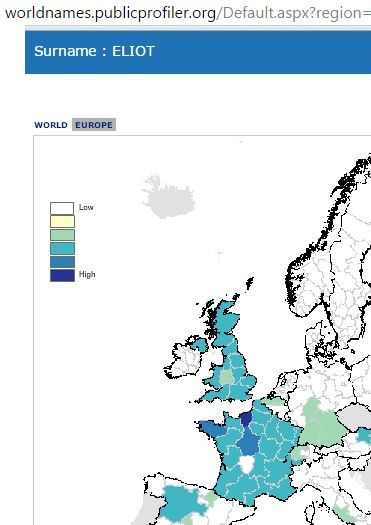
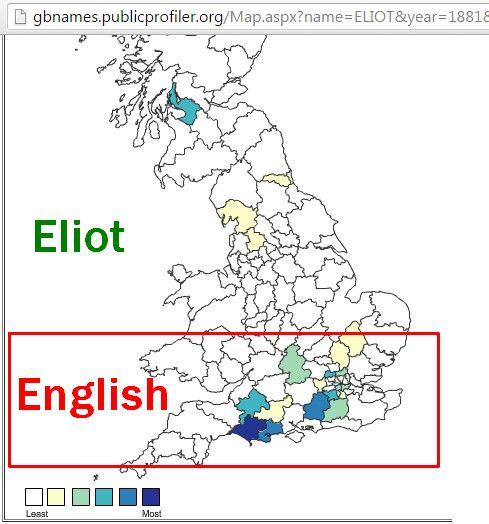
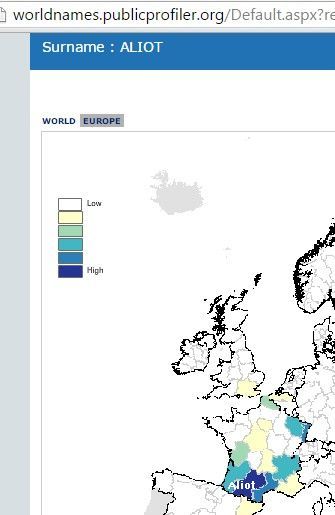
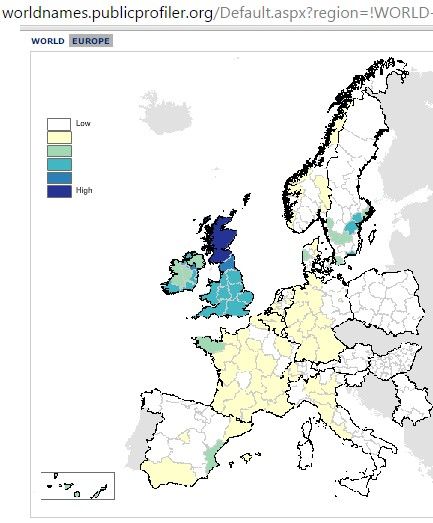
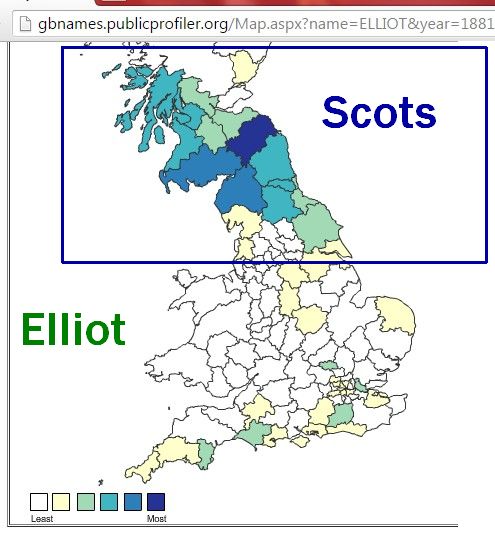
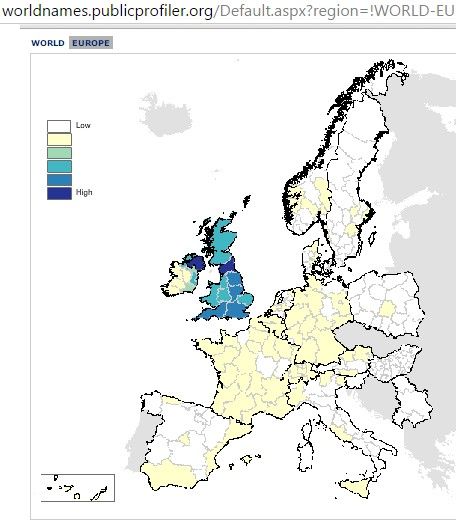
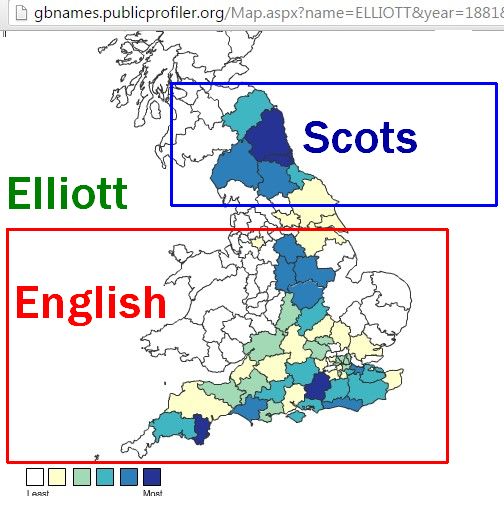
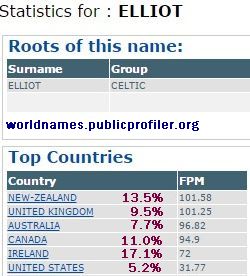
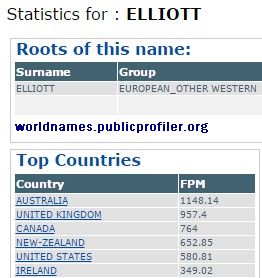
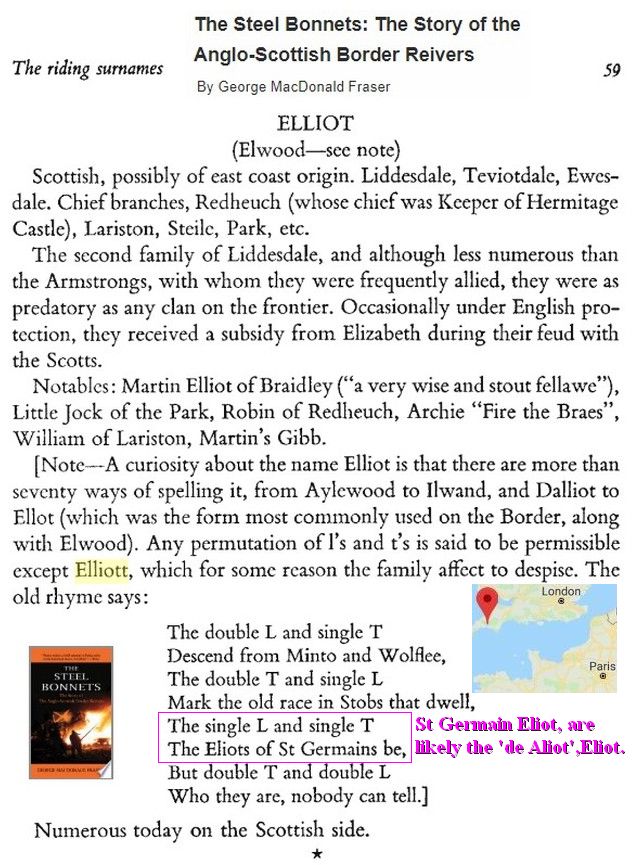
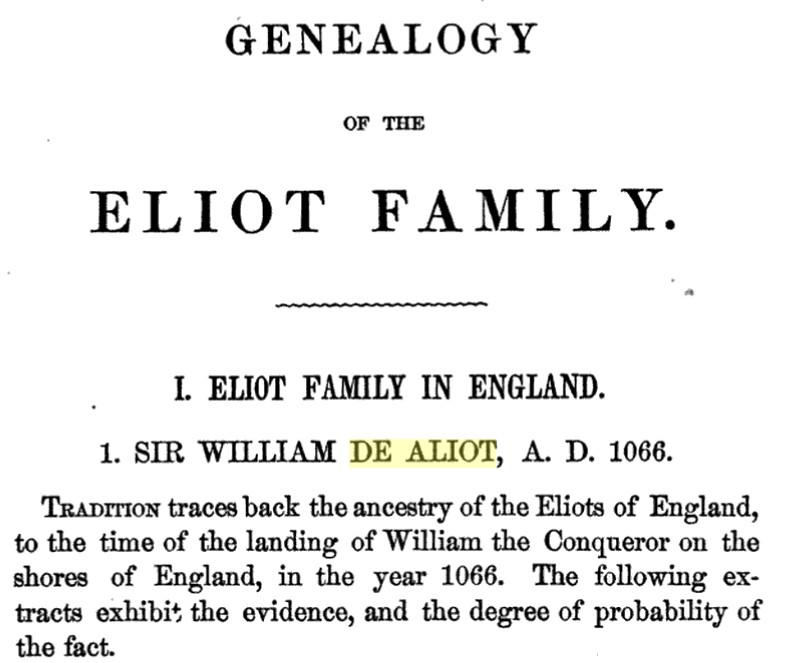
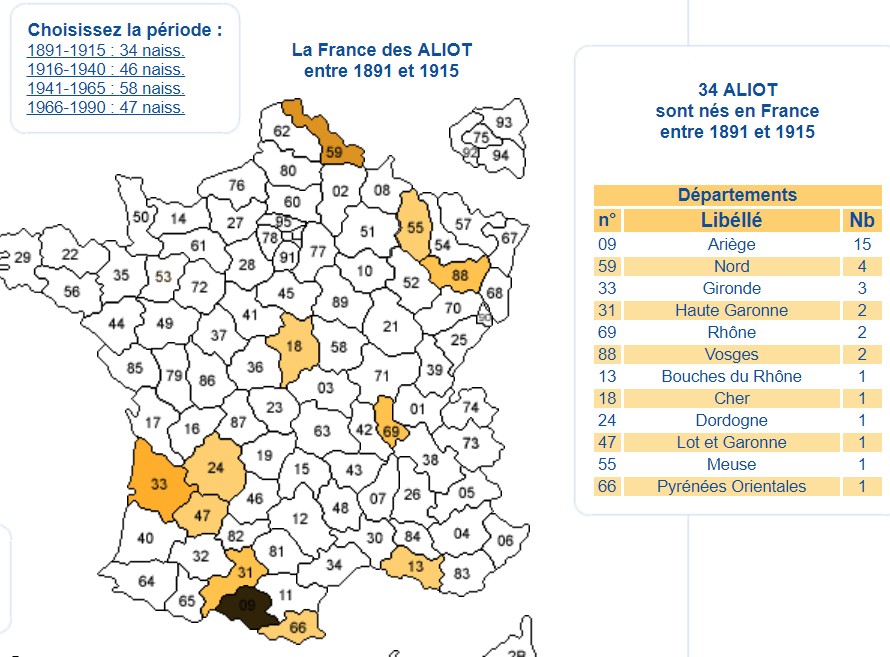
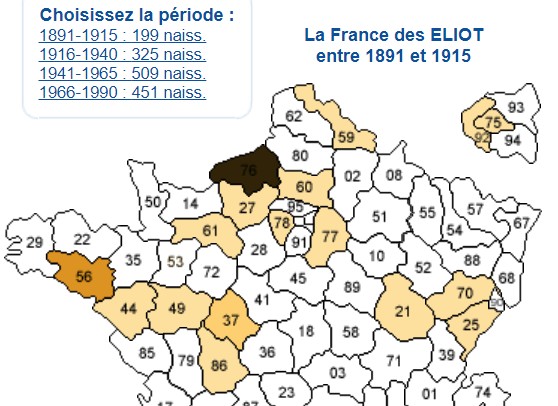
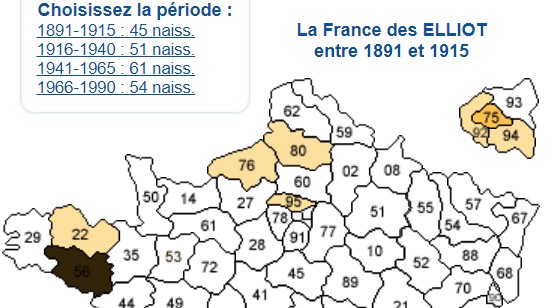
Thank you Mark you have opened a large gold mine of information for me
Regards. alex